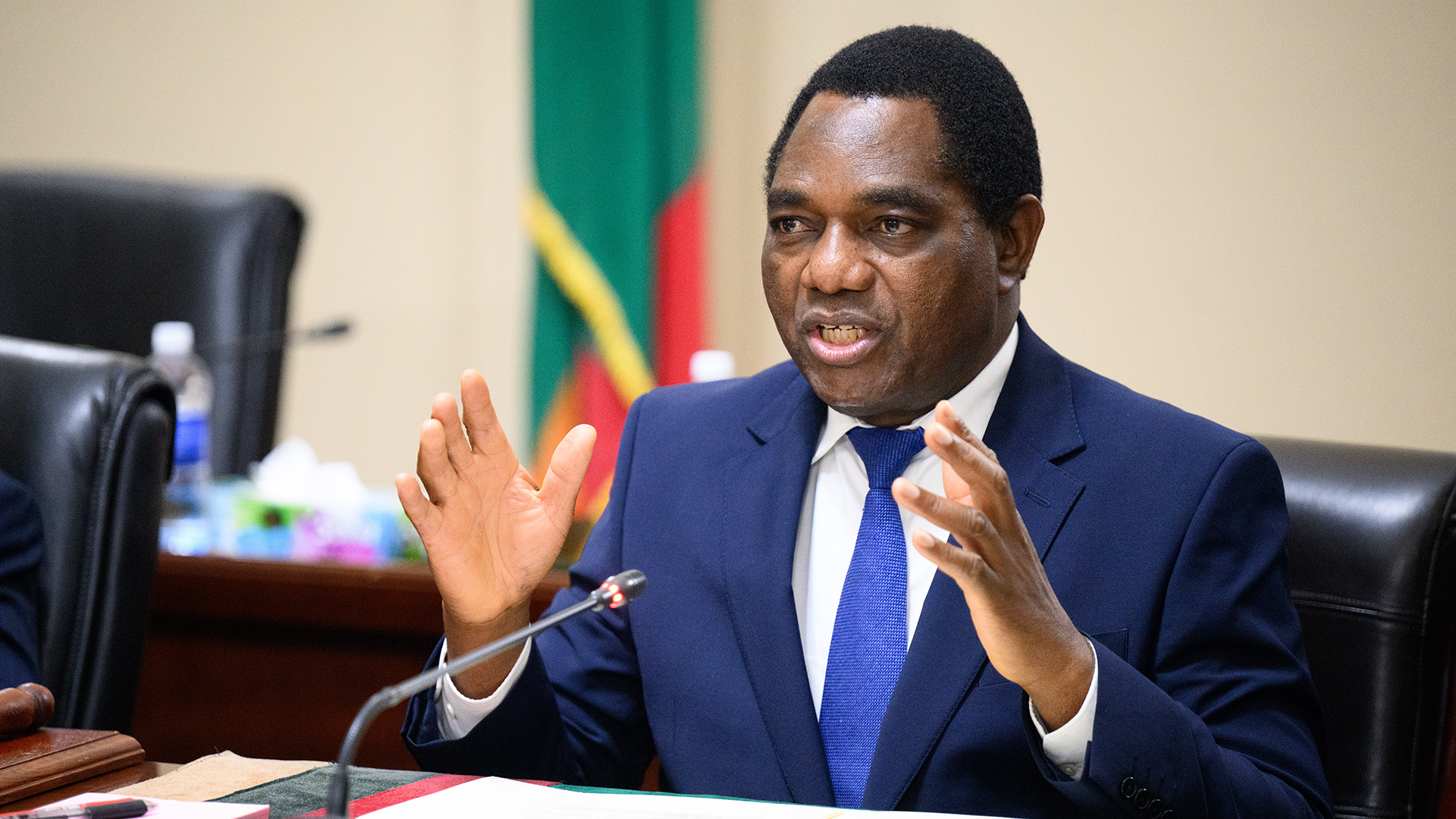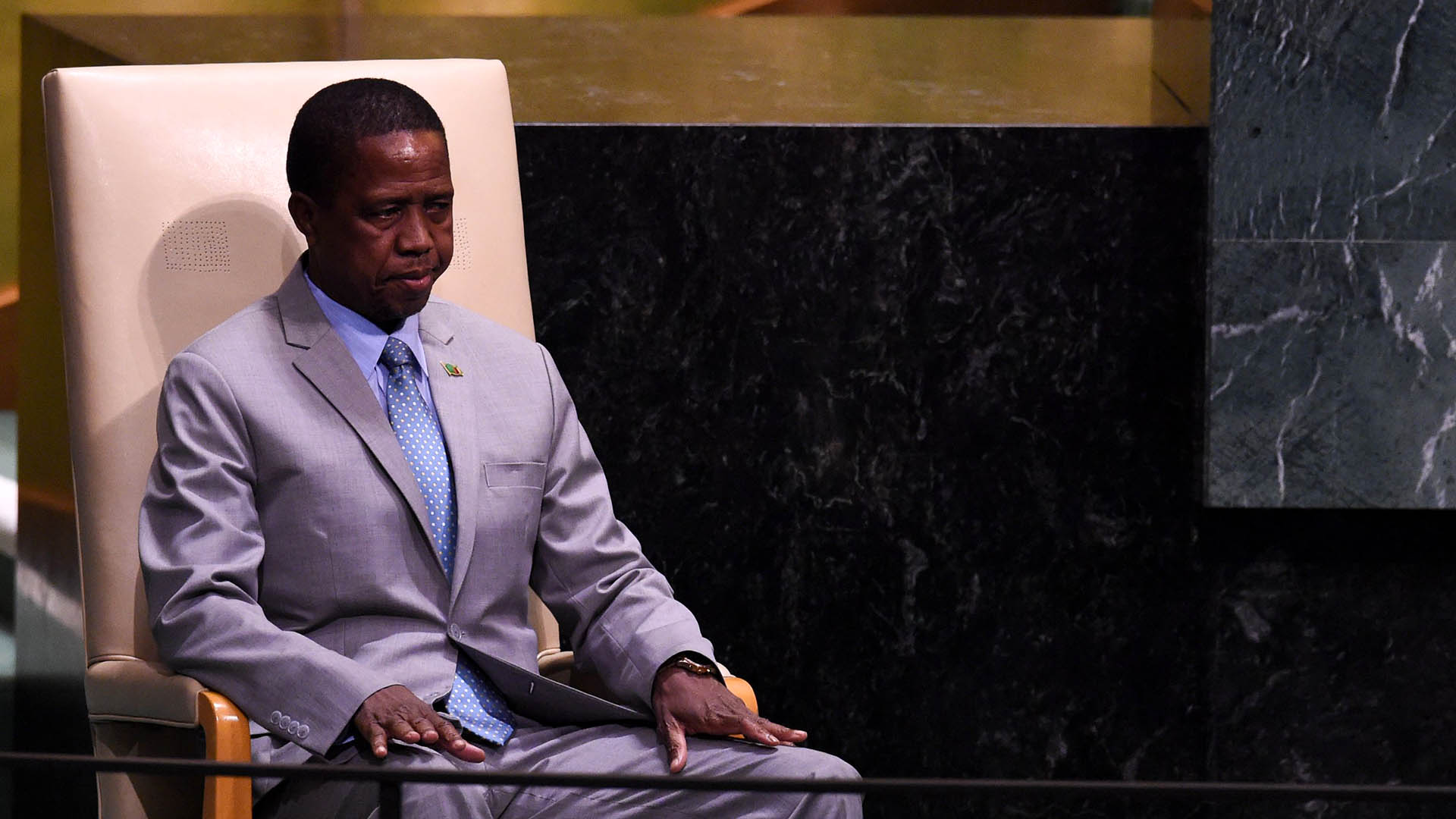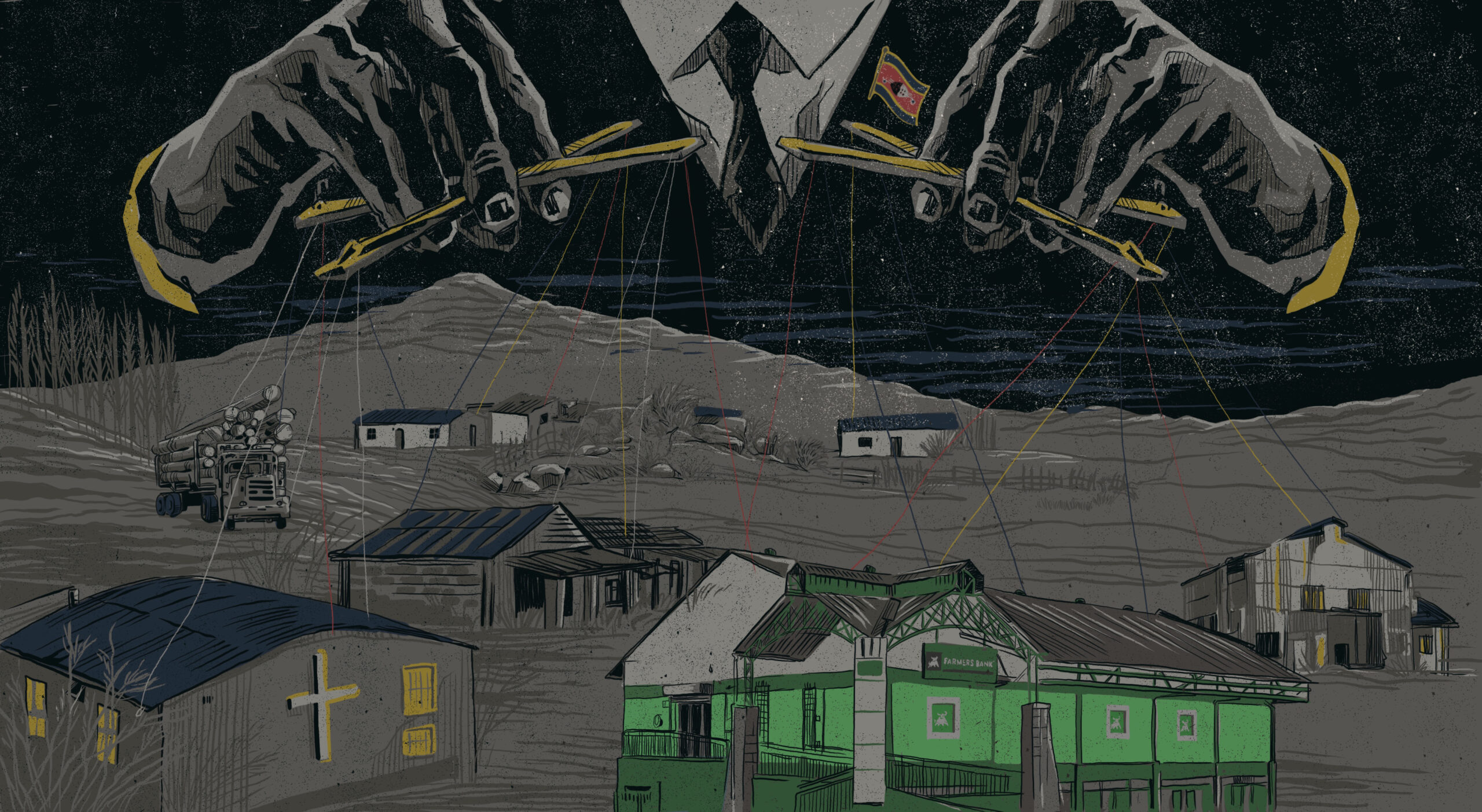CORRUPTION
Zambia’s president shocks by firing the entire board of the country’s anti-corruption commission
The surprise dissolution follows corruption allegations against the commission by one of its own board members — and highlights political constraints on financial reporting and anti-corruption institutions raised in the Swazi Secrets leak.

Zambian President Hakainde Hichilema fired the board of the country’s anti-graft body last week. The surprise decision followed allegations by one of its own members that the entity’s management was itself corrupt.
O’Brien Kaaba, a member of the now dissolved Anti-Corruption Commission (ACC) board published posts on the legal blog Amulufeblog in July accusing ACC head Thom Shamakamba’s management team of inaction in the face of millions of dollars in suspicious transactions exposed by the country’s Financial Intelligence Centre (ZFIC). Kaaba alleged that ACC officials were either “incompetent” or “captured” and covering up or failing to act on serious corruption cases.
Shamakamba was pressured by the President to step down on July 16, two days before the decision to remove the board.
Since the decision to remove the board, its chairperson, Musa Mwenye, backed Kaaba in a statement of his own posted on social media, saying the board had been “sidelined” by management “and denied access to any information on ongoing investigations.”
Kaaba claimed that, under Shamakamba’s leadership, there was a “trend” within the ACC, in which officials accepted bribes and kickbacks in return for granting immunity or other favorable settlements to those implicated in corruption. Shamakamba has denied this claim, the BBC reported.
In one blog post, Kaaba wrote that the ACC was agreeing to “legally senseless settlements immunizing some of the most corrupt individuals.”
“Using this mechanism, ACC is basically allowing… officials facing serious accusations of corruption to buy off their freedom, using the same resources looted from the public,” Kaaba wrote.
Among those controversially granted immunity was the former foreign affairs permanent secretary, Ronald Simwinga, who was appointed under former President Edgar Lungu.
Kaaba warned that President Hichilema’s “strong anti-corruption fight” had waned, and called on him to remove the ACC’s management.
In a press statement announcing the July 18 decision to remove the board, a government spokesperson said this was “intended to renew the Anti-Corruption Commission’s sacred mandate in spearheading the fight against corruption and is aimed at implementing necessary reforms to ensure the continued effective operations of the commission.”
One member of the now dissolved board told ICIJ that the President’s powers to hire and fire the ACC board were an obstacle to tackling corruption: “[board members] don’t have security of tenure of any sort so it’s a weakness.”
In June, as part of the Swazi Secrets investigation, ICIJ published an article about a confidential memo sent by Zambia’s Financial Intelligence Centre to their counterparts in Eswatini, containing allegations of corruption against former Zambian President Lungu and a close associate of his. Documents from the Swazi Secrets leak showed the political constraints on institutions like the ZFIC, whose board is also appointed by the president, and the institutions they report to, such as anti-corruption agencies.


